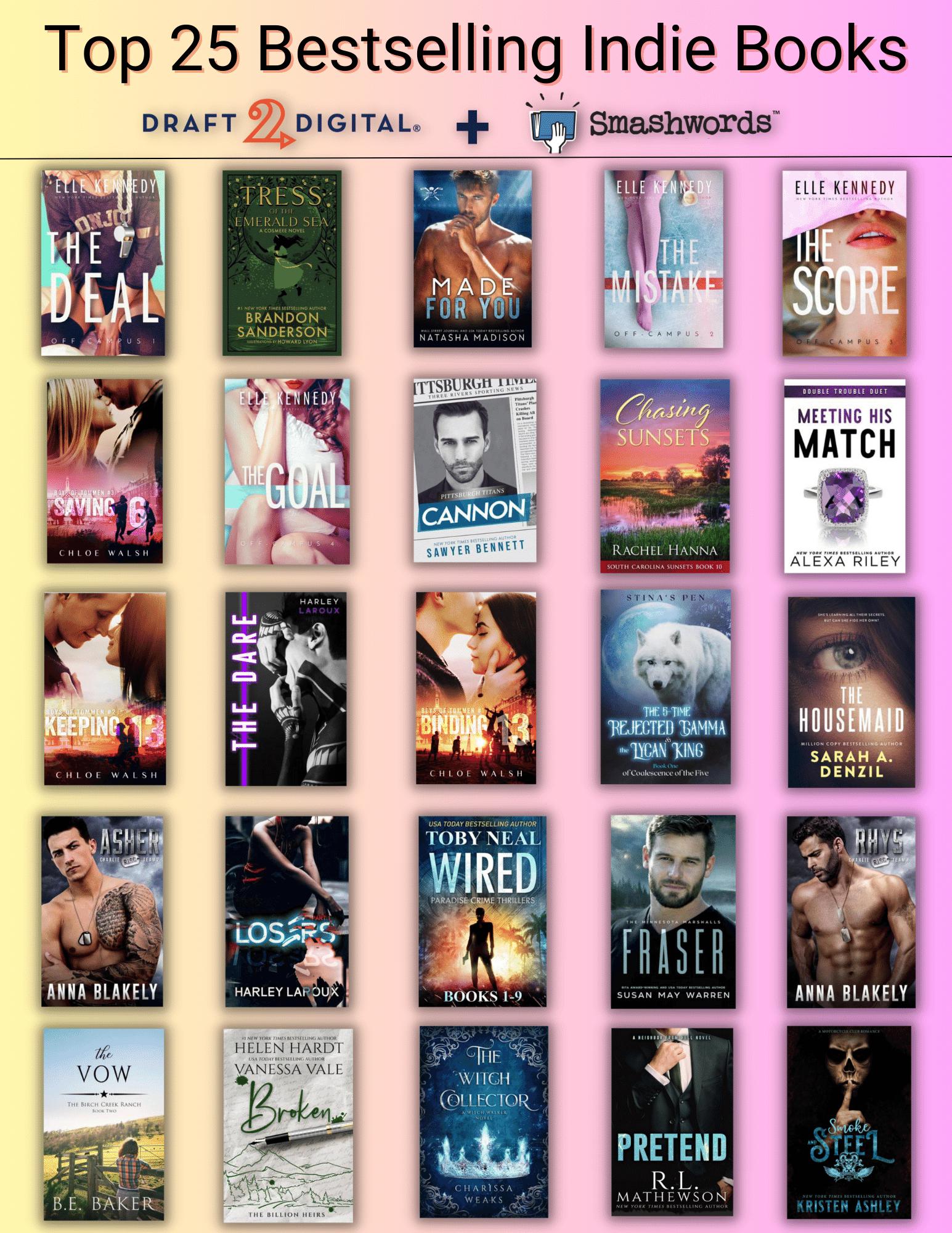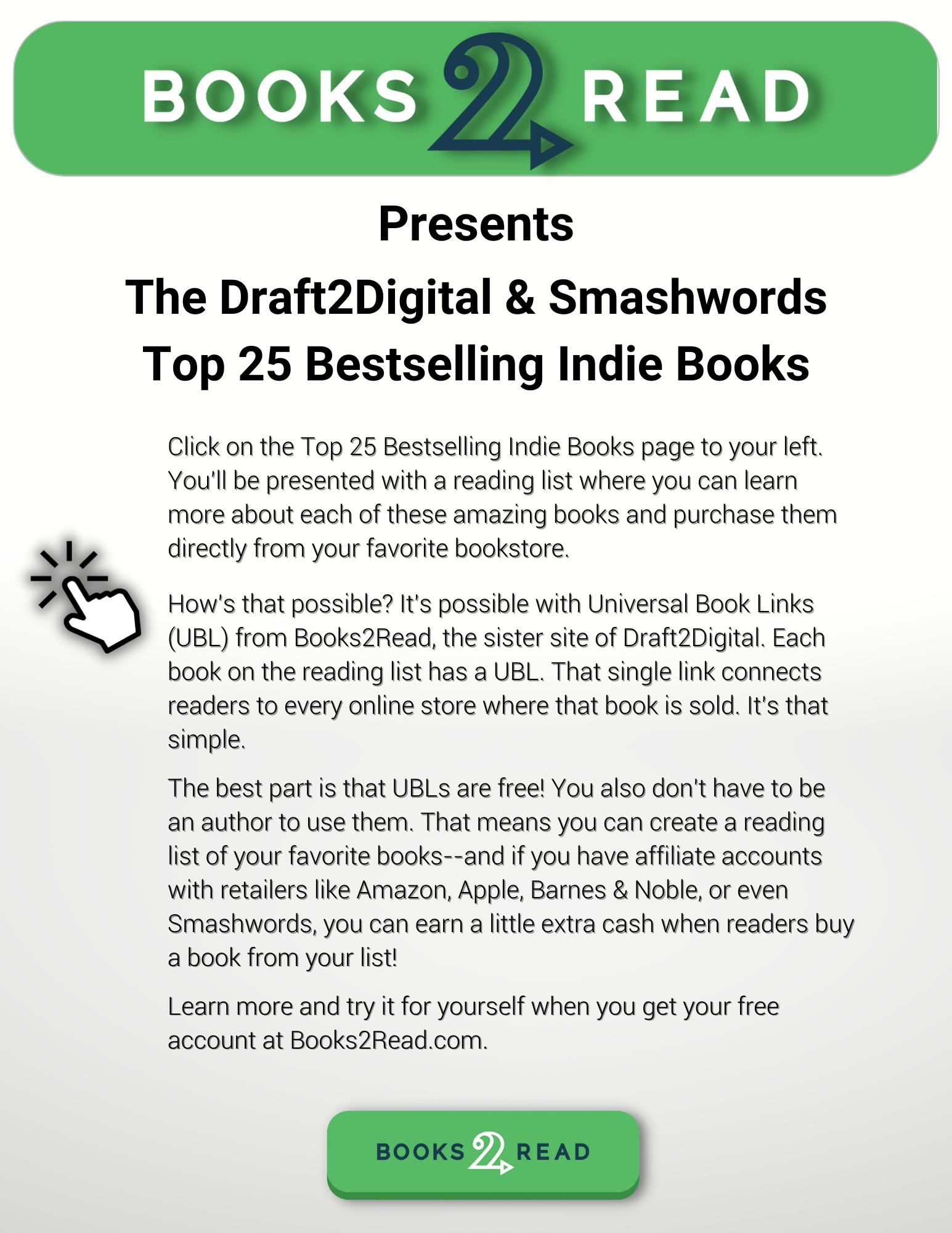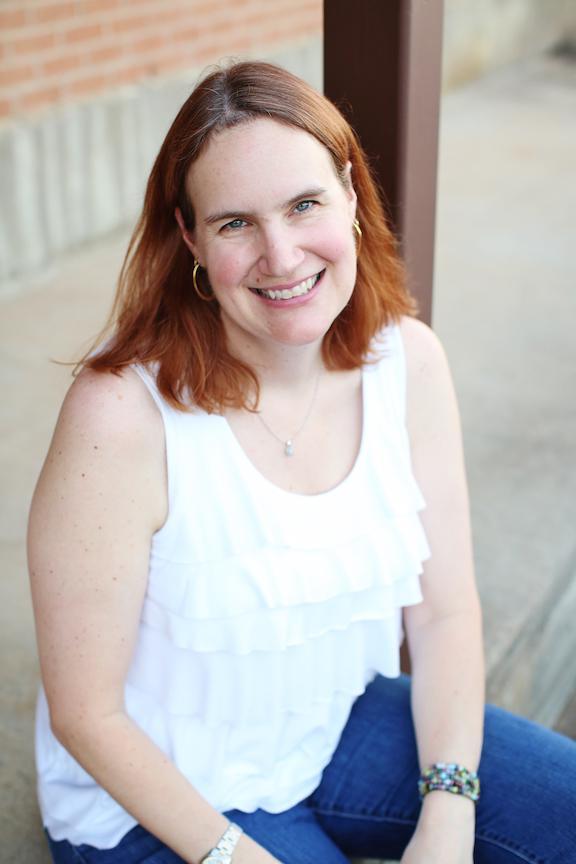
29 minute read
Stoker
InD: I hear you are in the middle of a big move!
SS: Yes, we are currently living in Tennessee, where we have been for Hive years. I must be cold blooded because I don't like the heat. It can be 71 degrees in this house but I think, “It is way too hot in here!” I have the thermostat set at 68. We both decided we are not Southern state people and decided to move north, and Maine is north, so that’s where we decided to go! InD: Did you just put a pin on your map and decide to move there? Maine is beautiful, but there are 50 states. How did you decide which one to go to?
Advertisement
SS: Well, I have already lived in the Midwest and we wanted a house on the coast, but we are not West Coast people, so we didn't want to go to there, although those states are beautiful. In Maine, we could buy a house right along the ocean, so now we have an ocean view and a dock and a beautiful yard! We also have a guest house, and I’ve been inviting all of my friends for a writing retreat. (It is a tax write-off for them, so that helps.) My husband was in the military, so every Hive years, we start to get an itch and we're like, "Okay let's go, let's go!"
InD: A lot of people after they get out of the military say, “Okay, it has been fun, but I want to put down roots now.”
SS: I think we are still trying to Hind “our spot”. My husband retired when he was in Kentucky and I was working in Indiana. We liked it there, but then I got a job that moved us up the ladder, but it was in Texas, so he followed me to Texas. We had originally met in Texas and we both really liked it there. But then I quit my job and started to write full-time so I could live anywhere, and in Texas, I missed the mountains, so we moved to Tennessee.
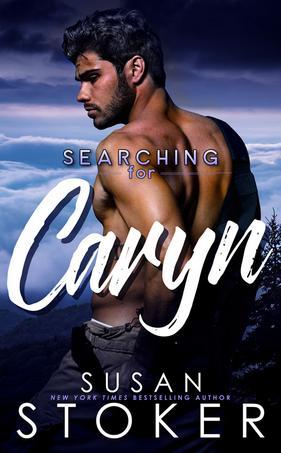
After Hive years we both said, “Let's keep going north.” And now, in Maine, we have mountains nearby without actually living in the mountains, so yeah, hopefully people will come and visit us in Maine.
InD: I think it’s wonderful you guys have this wanderlust and sense of adventure to where you can say, “Okay, let's try somewhere else!”
SS: Yeah, we don't have kids, so we don't have to worry about schools, and our family isn't in one place. My husband is a volunteer HireHighter and an EMT, so he can get a job anywhere. He has already talked to the volunteer Hire department where we are moving, and they are super excited. He is going to get a job with an ambulance company and is going to work part-time.
InD: How long have you and your husband been married?
SS: We have been married 23 years, this year.
InD: Wow, that’s awesome! Okay, let’s learn a little about your early years. Where did you grow up?
SS: I mainly grew up in Blacksburg, Virginia. When I was in high school, my parents divorced and I moved to Bowling Green, Ohio, with my mother. There isn’t much there, and it’s very Hlat. Then I went to Purdue. After college, I got my Hirst job in Texas, so I moved there, where I met my husband online. He was in the army and based at Fort Hood.
InD: Your childhood was spent in Virginia though?
SS: Yep, I lived in Blacksburg through the 9th grade. It is a small, pretty college town, not a city by any stretch. It has lots of mountains and it was a great place to grow up.
InD: What were you like as a child?
SS: I was pretty outgoing. My mom put me in everything. I was a swimmer and I did ballet; I ran track, played soccer, and did gymnastics, and I did all the things kids did in the 80s. No one had fences, so we played kick-the-can games throughout the neighborhood, and at Halloween we just went out and ran from house to house for hours and came back with a pillowcase stuffed full of candy. There were no cars driving people around. If you wanted candy, you had to hoof it and get it your own damn self. [both laughing]
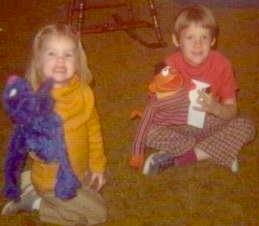
InD: And yet it was safe enough that the parents didn't care.
SS: Maybe it wasn't safe enough, but we didn't have the internet, so you didn't know, you just did it.
Nowadays you hear about every little thing, but back then, we were all in our own little bubbles.
InD: Were you a big reader growing up?
SS: Absolutely. I used to go to a monthly book section where there were the Harlequin-type books at Walmart and I would buy like 15 at a time, or I would go to libraries and start at the A's and work my way through.
InD: How young were you when you started reading so much?
SS: DeHinitely when we were in Ohio. We would go to the library all the time. I have always been a Romance reader because they always have a happy ending. It doesn't matter if it's Contemporary or Suspense or Paranormal or whatever, I just want everything to turn out okay at the end.
InD: Do you have any brothers or sisters?
SS: I do. I have an older brother who lives in Virginia with his four children, and I actually had another brother, who killed himself when he was 16. I had just turned 14.
InD: Oh no. That had to have changed your entire family's life.
SS: Yeah, to say the least. But you just keep going. You don't have a choice.
InD: How did you handle that at 14 years old?
SS: It was hard. It was obviously way harder for my mom. She had a lot of guilt because she and my dad were separated. My brother was actually high on drugs when he did it, so we would like to think that he wasn't in his right mind, but it was hard. I had lots of good friends, and my mom kept things on an even keel and we muddled on. My older brother went to college the next year, and then we moved to Ohio, which helped my mom a lot. It was hard for me to move in the 10th grade, but my mom couldn’t stay in that house.
InD: Moving would have been really hard at that age.
SS: Yes, because right after something like that happens your friends are everything, and then you move, so yeah it was hard. I had swimming though, and it gave me a steady group of friends in Ohio, which is what I needed.
InD: So was it because of swimming that it worked out okay?
SS: I think so. I am the kind of person where I am pretty even keeled, though. Even today with the book world, drama happens, but I try really hard not to stress over stuff I can’t control, and there is so much in the book world we cannot control. We cannot control Amazon. We can't control Audible, what readers do, what other people do or say etc. The only thing I control is what I do, so when the newest drama comes up, I just keep my head down and do my own thing. I think that even keeled personality helps me get through, along with the swimming.
InD: When you went to Purdue University, what did you want to be?
SS: I went to Purdue on a swimming scholarship, so college was paid for, but I had always wanted to be a teacher so I got my degree in Elementary Education. Then I got my teaching certiHicate, but I couldn't get a job. I knew a swim coach at the University of Michigan and he knew about a guy who was just hired as the women’s swim coach at Texas A&M University, and he needed an assistant.
So, the University of Michigan swim coach said, “Hey, how about Susan? She knows what she's doing.” So I got the job of assistant women’s swim coach right out of college, at the age of 22… and it paid $10,000 more than I would have gotten paid as a teacher.
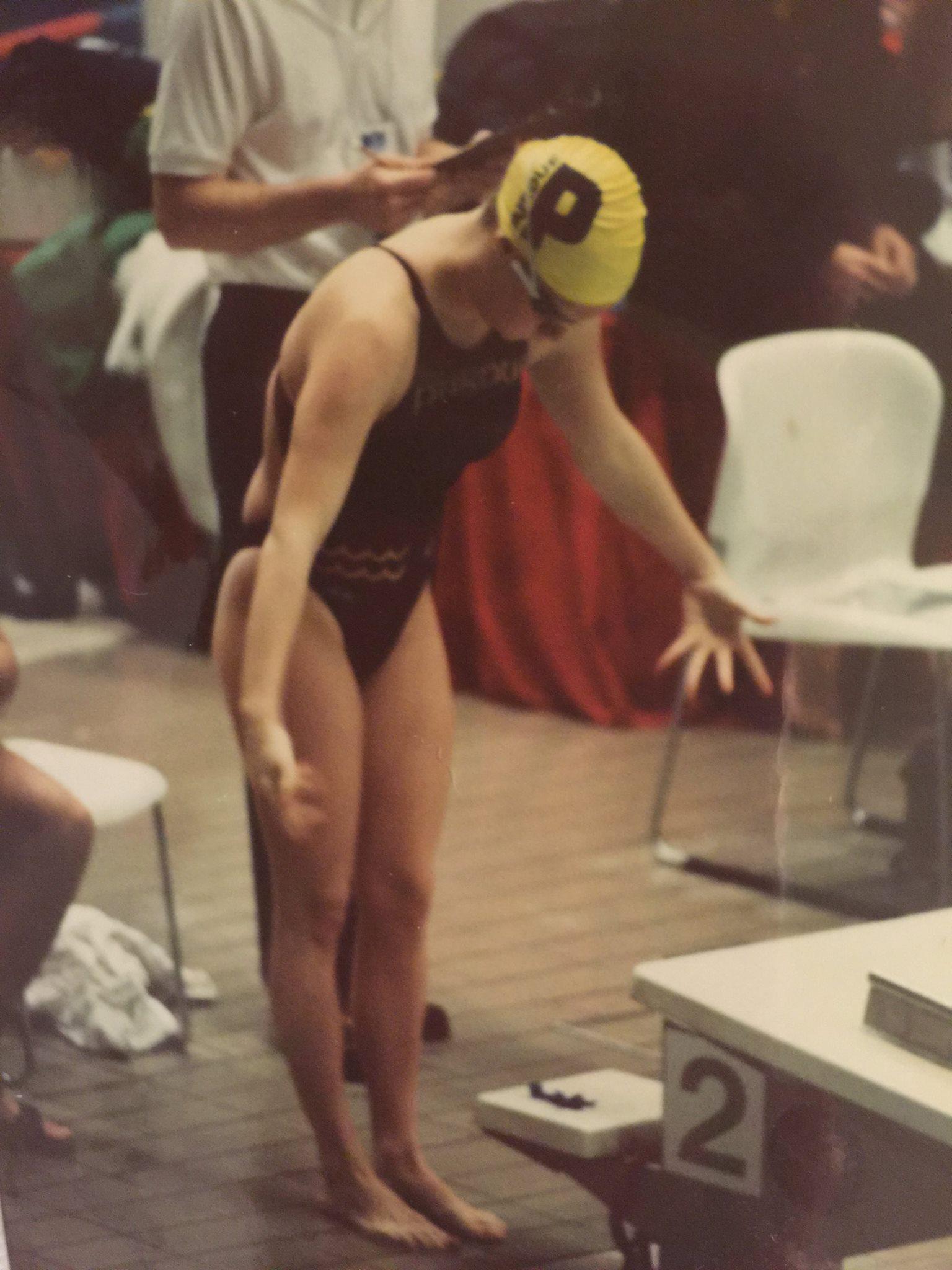
InD: Wow! So how was that experience?
SS: It was great! I loved being a coach and I loved the girls. We were all kind of close in age so it was great. I learned a lot and got to travel. I bought a house in Texas and I was like, “Look at me! I'm making all this money and I bought a house, and I’m only 23 years old!”
InD: Was it at that time you met your husband?
SS: I met my husband on Hotmail ClassiHied. We used ICQ, basically a chat program, and he and I would chat back and forth for ages. I remember one day I said to my swimmers, “I met this guy online, he is in the Army, and we are going on a date – hiking in the woods”. They said, “What are you doing?!?”
InD: [both laughing] You couldn't write a better thriller than that!
SS: I know, right? They said, “You cannot go on a hike in the woods with a man you’ve never met!” And I was like, “But what if he's nice? We talked for hours on the phone.” [laughing] It did work out. Patrick was very nice but he’s scared of spiders, so I had to go Hirst because it was dewy and all the webs were across the trail. Then I left my wallet in his truck by accident (I swear it was).
He and I lived two hours apart so I called him and asked if my wallet was in his truck and he said yes and he would bring it to me right then. I was like, “Dude, it’s 9:00 p.m.", but he did it anyway. He would also come to the swim meets at Texas A&M and would time for the team. If there are any swimmers out there, you know that the timing is the worst job. It is boring and hot and humid. And here’s Patrick, my new boyfriend, offering to do it for us! I was like, “Oh my Gosh, he is so cute (because he had a shaved head) and he is even timing!”
InD: When did it get serious?
SS: Well, there is a caveat. The coach that hired me left and a new coach came in. Thankfully, he kept me, but we did not click as well as the other coach who I’d been working with for Hive years. So when Patrick got orders to go to Missouri to be a Drill Sergeant, we both said, “Look, are we going to do this or not?” He asked me to marry him and I said yes!
So I told the current coach after the season, I was done, then I went to Missouri and we got married. We lived in Missouri for two years, and then we lived in California for two years.
InD: Did you work when you went to Missouri?
SS: I did. I went to Fort Leonard Wood, Missouri. I had my Bachelor's degree but I needed a job, so I got one as a secretary on base at the education center for Webster University. It was the best thing to ever happen to me. After two years, we had to move to California, so I went to my boss and said, “There's no Webster University at Fort Irwin in California, so maybe I can start one…” and gave him a little grin and he said, “Actually, I believe they want to start one.”
So they made me the director of that campus when we moved to California. I had to hire all the teachers and recruit all of the students. I was a one woman band out there. Webster University is a Master’s degree program mostly, especially on the bases, so I earned two Masters degrees for free. I was bored because we were in the middle of the desert and there is not a lot to do out there, so I decided to get my PhD, as well.
InD: What were you getting your degrees in?
SS: My Hirst Masters was in Human Resource Development, my second was in Security Management, because I wanted to take fun classes like Terrorism and I wanted to go to the prison and have a tour. I got my PhD in Organizational Management, and I became “Dr. Stoker”!
InD: How old were you at this point?
SS: I was 28. Then Patrick went to South Korea. He was supposed to come back to Colorado, so I was not allowed, thank you Army, to stay in California. So I moved to Colorado to wait for Patrick and got a job as registrar at a community college there. I loved that job. I worked my way up from secretary to director to registrar, who is in charge of all the records, and then Patrick learned he was not coming to Colorado and was being sent to Kentucky instead. I found a job in Indiana as a registrar at a community college there. That was where I was until Patrick retired. Then there was a job opening for a registrar at Tarleton University, a four-year college in Texas. It was a step up from a community college, so I applied and got it, so we moved back to Texas. And here is where the writing Hinally came in.
InD: Were you writing anything up until that point?
SS: I was. I would read a story and if it really resonated with me, I would go on my computer and write my own little story. But they were always just the good stuff, like the drama. It wasn't the middle sloggy stuff. I had all these little stories.
I had a desk job but when I wasn’t busy, I was typing away on my keys, writing little stories. They were not publishable because they were just little snippets. I still have all of them and they crack me up when I read them. During that time, I met Maya Banks. When she came to Dallas, I drove to Dallas to see her. I think that was in 2013, and I was so excited because I love her books. I bought my ticket and she signed some books and I thought it was so amazing. I have always been a reader, so I took a chance with another author I read and I emailed her and told her I loved her books but there were so many typos in them. Now, I know authors hate that, but back then what did I know? She was very gracious. She said thank you, then asked me if I would proofread for her publishing company. I was like, "YES!” Now proofreading, and I use that term lightly, because I was not proofreading, I was actually editing. It would take me like 14 hours and I would get paid like 25 bucks. I mean, it was not a good gig, but as I read these stories, I thought in the back of my head the stuff that I had in my computer was just as good, or better, than those stories that were actually being published.
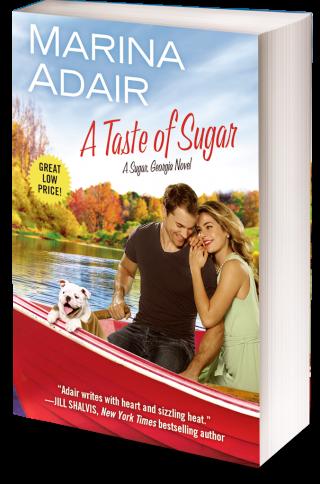
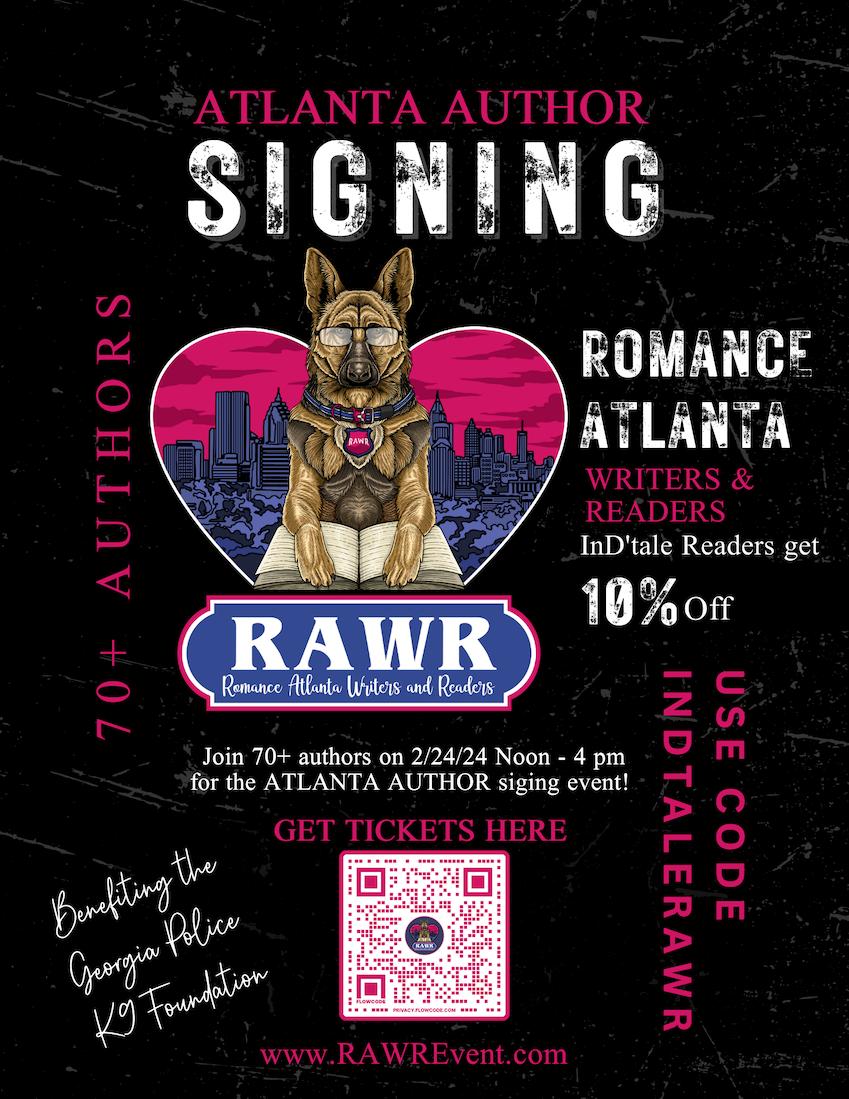
I had one story that was mostly done on my computer, and so I talked to this author and she talked me into publishing it through her company. I thought that would be awesome, so I published my Hirst book, “Outback Hearts”, around March 2014 and I was so excited. It is a Contemporary and is still out there, and gets like three purchases a month.
InD: I don’t think I have read that one. SS: I doubt many have read it. It’s based on a reality TV show. Back then, there was a show called “Outback Jack” that was basically like The Bachelor or Bachelorette, but in the Australian Outback. They sent 16, high heels, do your makeup, “I don’t like to sweat” girls into the Australian Outback to compete for this guy, Outback Jack. I created my story from the question, “What if there was one normal, everyday, not-high maintenance girl in this competition?”
Anyway, what I learned from that book, and the two following books, was how authors promoted. I paid attention to the other authors on Facebook, what they were doing and how they were interacting with their readers. Do they have reader groups? How do they write their newsletters? Stuff like that, because my books were getting lost and weren’t selling.
I needed to drill down and Hind more of a niche market in that huge Contemporary genre. I had another book that was half written on my computer, so I prettied that up a little and hired an editor. It was about Navy SEALs and my husband was in the military, so he could help me. September 2014, I published “Protecting Caroline”, and it did really well. Fun fact, though, it is my only book without sex!
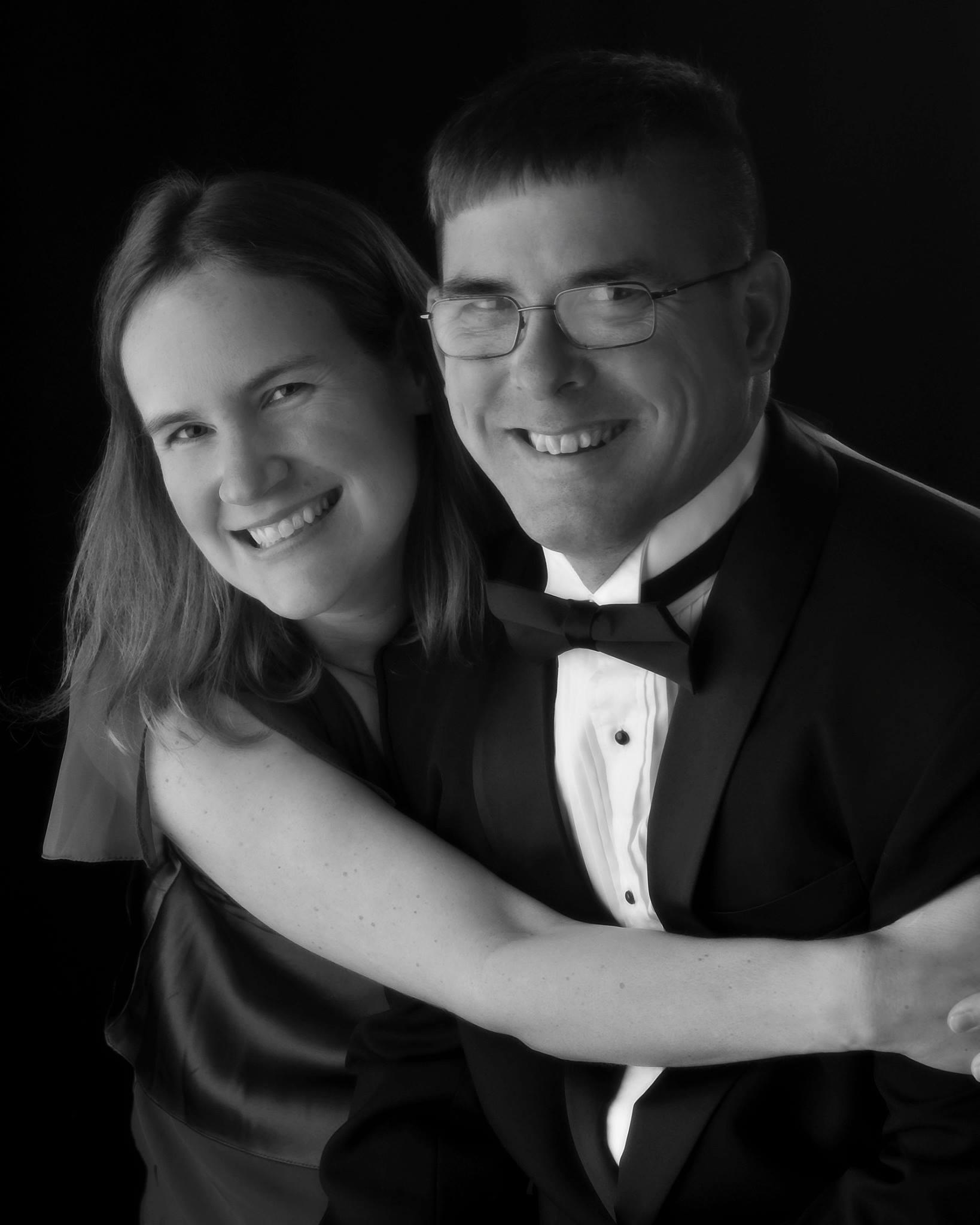
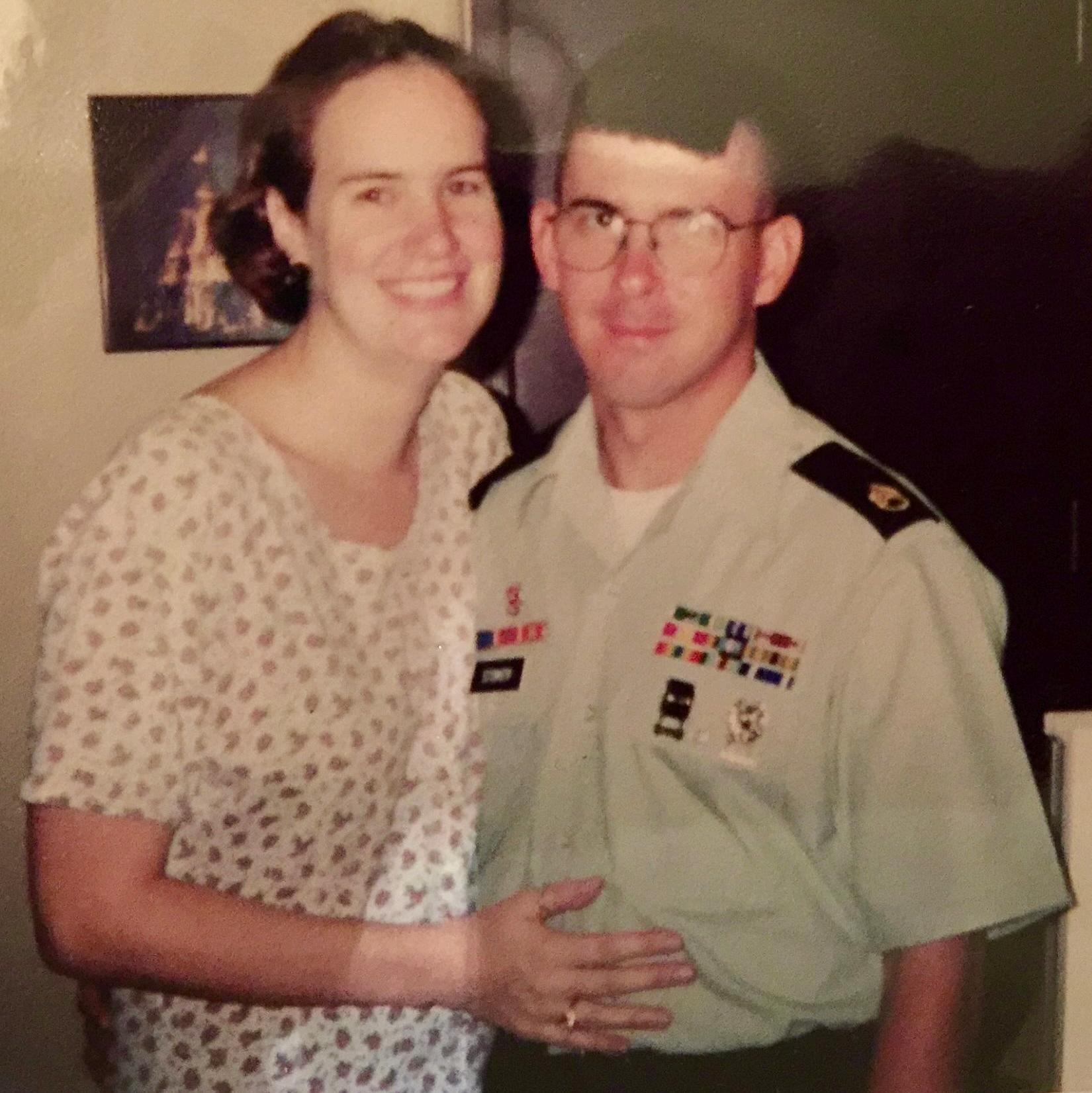
InD: Do you think that was your niche? Because you have a very distinct niche you’re so good at. Almost all your books are Navy SEALs, or Delta Force, or Search and Rescue… that type of man.
SS: Yes, that is my niche. I love what I write, and I have done that from the get-go.
InD: You found what you loved from the very beginning and that also happened to be a niche that needed to be ]illed. That’s like a miracle!
SS: I like good guys. Some readers love bad guys. They love the alpha-hole, but I like good guys. I am not a huge fan of the enemies-to-lovers trope because I want a couple to like each other, so in most of my stories when the hero or heroine admits that they like each other, that's it, they’re together. There are no big misunderstandings that break them apart. It is the external conHlict, whatever that may be, that gives my books the suspense.
There are times I will call my author friends and say, “I need to talk about a plot. I don't know how this is going to work,” and they will talk me through and give me some ideas. Then things will start churning in my head again. I also like a woman who can be out of her element and not be a bitch about it. She can be trying and not just whine and complain. And I like my guys is to be good guys, but they are not all good looking. They are not all over 6 ft. tall and have six pack abs, but they can still be heroes.
InD: A lot of your heroes are dangerous but still really good men. We like that fantasy. A part of the reason I love your books is all the con]lict is external. One gets to read a wonderful love story with outside con]lict, which is just fabulous.
SS: Yes, sometimes all the angsty misunderstandings in books drive me crazy. I am like “Are you two adults? Talk to each other! Back in Chapter 2, you could have had one conversation and the book would be over!” My characters tend to be a little older because of that. I want them to be mature enough to talk to each other and Higure their stuff out.
InD: I have noticed that your heroines are often a bit older, which is kind of nice. There was a while there where every heroine had to be in their 20s, but your heroines are usually 30s or a bit older.
SS: Yeah, I kind of run the gamut. It’s a little harder when a Hero is on active duty because they can't be 50, so some of my women are in their late 20s, but they are still more mature and act like adults. I make my women strong. Most of my SEALs and Deltas are in their mid-30s or a bit older, though.
InD: Another thing that is really refreshing is most of your heroines are not drop dead gorgeous – someone who everyone just stops and looks at when they're walking down the street. Yours are just normal, average kind of nondescript women.
SS: 100%. None of them were cheerleaders or prom queens. You know why? Most women aren’t, yet most women out there want to see themselves in a character.
Sometimes my editor is like, “What color is her hair?” I've forgotten to even say, so I have to actually think to put the basic things in because I want my readers to picture themselves in the story.
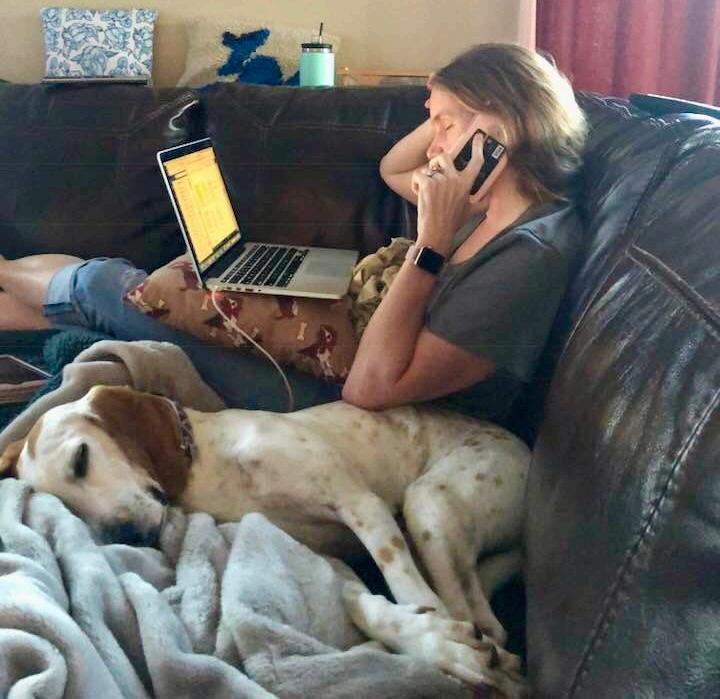
I run the gamut between 4 ft. 9 and 5 ft. 11 for the women, and they are of all ages and all weights. You said it perfectly, they're normal women. That started with Caroline in “Protecting Caroline”. She was a chemist. She was smart, but she was constantly overlooked. There is a scene in that book which strikes home with a lot of women. She's asking Wolf and his friends, “When did you Hirst meet me?” and Wolf is like, “When you sat down on the plane,” and she says, “No, you held the door open for me at the airport.” Then she asks his friend, “When did we meet?” and he’s like, “When you were walking down the aisle toward me,” and she says, “No, it was when I stepped over your feet and you said ‘excuse me’.”
That scene shows we have these encounters with people we just don't remember because most people are not a model or someone that stands out so others remember, but yet this character is one of my most beloved characters because of how strong she is. I think I got that from my childhood. You survive. You don't call yourself a victim, and you just keep going.
InD: I admire that even with as many books as you have written, each of your heroines are very unique and have very different personalities and situations.
SS: Now to be fair, I write formula Hiction, and some people will complain that all of my books are the same; in some ways that’s correct. They meet, they fall in love, crap happens, and they work it out and get back together. That’s a Romance, but like you said, each situation and person is very different.
InD: Exactly. In the Romance genre, the story must have a happy ending, but, on the way to that, the characters must meet, get to know each other, fall in love, and go through something to solidify that relationship – all that while helping readers understand those characters and situations. That is a challenge in and of itself, and you do that so
fabulously.
SS: Thank you. I think these are my kind of fantasy stories too. I always ask myself, “What would I want”? Then I write that in my books. For instance, most of my women have girlfriends because I think that is super important for women to have girlfriends, as well as their guy. I also seem to like the kidnapping trope because a girl can be completely out of her league and scared and freaked out, but still Highting. My characters don’t have to wait for a hero to come save them. He might still come and kill the bad guy, yet she's actively trying to help herself. One of my favorite books for that was “Justice for Corrie”. Her character is blind. Growing up, I read a lot of books where the heroine was blind, and at the end she would have a surgery and they would “Hix” her so she could live happily ever after. But I was like, “Why can't you live happily ever after and still be blind?”
Think about if you are handicapped and the person in all your books always gets Hixed or healed, but you're never going to be Hixed… what does that say to you and your own happiness? So I had Corrie born without eyeballs, there’s no way to “Hix” that. And in the story, she was kidnapped but she saves her damn self! She got away from her kidnappers, ran through a forest, climbed a tree and hid until the boys came in and took care of the kidnappers. Then after it was all over, I had the hero close his eyes and try to walk out in the forest. He can't take more than six steps and he realizes he has no idea how she did it. And she's like, "Well, it's what I do.” I have had a lot of characters with disabilities, because again, I want my characters to be every woman. That’s why you’ll get a whole gambit of different characters and their struggles.
InD: One of the characters that really moved me was Blythe in “Shelter for Blythe”. She had been raised in numerous foster care homes and just had a crap life, but grew up to become a wonderful person. Then the crap really happened and she ]inds herself out on the streets with no money and nowhere to go. Oh my gosh, my heart was just tearing out of my chest and I actually cried for her! How do you get into the very heart of all those diverse characters, to the point the reader is actually experiencing it, as well?
SS: The short answer is, I don't know, but I have a great imagination and I feel I have a lot of empathy. As an example, I have watched a lot of episodes of "My 600-lb Life", so when I wrote “Justice for Erin”, where she decided to have weight loss surgery, I incorporated a lot of what the people of that show feel and say over and over. I sincerely want the people in my books to overcome whatever crap they have in their lives. That is inspiring.

InD: You do that very, very well. You must have a lot of empathy because I think one of your strongest points as a writer is that you create characters we feel so much for.
SS: I want my readers to put themselves in the character’s shoes. I want them question, “What would I do?” Hopefully you would be strong enough to overcome whatever it is. The other thing is, I try to mix up the happily ever after. I’ve had some people beg me to have Caroline and Wolf have babies, and I'm like, “But they don't want kids. They’re living their happily ever after.” Some of my couples have lots of babies. Some have one. Some do foster care or adopt, some do invitro, and some just don't want children, and that's okay. I think in so many books, getting married and having children is like the end goal, but I don't think that's true in real life. My husband and I don't have children, and there are so many couples out there in so many different situations. I want them all to be represented. InD: You say your heroines usually save themselves, but you also have heroines who don’t. In one of your most recent books, "Searching for Lilly”, when the heroine was kidnapped, she froze. Then, afterward, she was so mad at herself because when it came down to it, she hadn’t fought back. I think that is also something many would do. The terror might paralyze even the most capable women. That is a very realistic scenario.

SS: Exactly. A heroine isn’t always able to rescue herself. Another character, Bristol, in Searching for Bristol, was kidnapped but she had to wait for her hero to Hind her. She could literally not do anything but wait. Her strength was in not giving up until then. There are many who aren’t the damsel in distress, but they are a heroine in peril.
I think a lot about Elizabeth Smart. It is amazing what that girl survived at 14 years old. And you know what? She went on with her life, and today she's happy, married, and has a family. Not everybody who has a crappy foster child experience turns out broken. Not everyone turns to drugs. People have horrible lives all the time, and yet they overcome them. I love writing how women overcome the obstacles and the horrible things they go through, and yet still manage to come out on top and live their happily ever after.
InD: So many of your books revolve around the military, is this because of your husband?
SS: Not really. Now I will fully admit a man in uniform is a thing with me, so it didn't hurt. [both laughing]
InD: Does your husband read your books?
SS: Not usually. He has read some because people kept asking him if he has read them and he felt guilty, but Romance is not his thing. He is a history geek and likes nonHiction books, but if I have a question, he is always Johnny on the spot.
I remember asking him once, “Honey, I’m writing a tech scene and I need a Special Forces helicopter that can hold 14 people.” because I had all of these people who had to be rescued. He said, “Okay, a MH 60,” and 10 minutes later he is still telling me how many gallons of gas it can hold, the different ranks of the people that can Hly it, and I’m like, “Dude, all I needed was MH 60.” Then my editor came back and said, “I could not Hind anything about a MH 60. I found an CH 60.” I went to my husband and said, “I think you were wrong,” and he comes back and says, "No, a CH 60 is a MH 60, modiHied for Special Forces.”
InD: Give me an example of a book that was really hard, or really easy, for you to write.
SS: “Protecting the Future” was hard because I went back and forth between the girl's point of view and the guy's POV on the mission. There were like eight girls and eight guys, and I had to keep them all straight with what they're doing and all the children… I was like, “Oh Lord, how many kids do these people have now? And how old are they now and how much time has gone by?” I was just not good at all those little details. Usually, towards the end of a series, it gets a little harder, and sometimes book one is hard because I don't know the characters yet.
“Rescuing Mary” and “Finding Joelle”, which comes out this summer, were pretty easy to write. I think it is because I really loved the characters and they got in my head pretty easily. I just remember the writing Hlowed very fast.
InD: Why are the ones near the end of a series really hard?
SS: Because there are so many characters and I like everybody to be friends, so by the end, you have six couples come before you and you want to integrate them all, and now I have to have to remember which girls are married, which are pregnant, and how far along. Has it been like 12 months? I have no idea, because I suck at timelines. My editor will come back and say, “Susan, this girl is 10 months pregnant by now!”
InD: You have so many books, you must write awfully fast.
SS: I do. I can write a book in around 2 weeks.
InD: Wow! Do you just sit down, start writing, and don't quit until it's ]inished?
SS: I am type A, so once I start a book I am kind of driven to Hinish it. There is no dragging it out, I just want the thing done, so that helps. I am also a fast typer. I can type 90 words a minute, I can get my thoughts out a lot faster. Plus, I don't have children, so I don’t have to stop to feed kids, take them school, and all those things. InD: Honestly, that is a big thing.
SS: Yeah. I am a morning person, so I get up, do some email stuff and then start writing while my husband is usually still sleeping. I continue writing until my brain says, “Okay, you're done,” or if I don't know what's going to come next in the story and I need to think about it. I usually try to write 5,000 words a day. Sometimes, if it is a scene that’s just Hlowing, I can do 10,000 words, but sometimes it is 2,000 words if it's at the beginning. I am a pantser, but I know how they meet and I know what the drama is, external conHlict, and who the bad guy is before I start writing. Then I just dive in and make the rest up as I go.
InD: Are there heroines where you felt you could have been that person?
SS: Yes, in “Outback Hearts”, and it is probably because that is my very Hirst book, but so much of that book is me. There is some of me in all of them. In one of my series, one of the characters loves Christmas tree cakes. Guilty. Another loves junk food; that is me. But mostly, my heroines are how I would like to act if I was in her situation. I don't know that I actually would, but it's a fantasy.
InD: I am just amazed at how you are still able to come up with so many new and different ideas!
SS: I watch a lot of Crime TV, and people in real life are way meaner than they are in my books. Sometimes people are like, “Your villains are terrible!” and I am like, “Uh, have you watched Snapped for Gosh sakes?"
InD: How many books you have written now?
SS: My latest book, “Finding Ashlyn”, was number 93.
InD: Wow! And you have only been writing since 2014… so some 90-odd books in 8 years.
SS: Some of them are novellas. I'm actually on schedule. I have nine books publishing this year and nine books next year, and then I'm going to slow down to six books a year, one every other month. There might be a novella thrown in every now and then, too. This job is tiring, especially in today's age with people feeling it is their right to state their opinion to anybody and everybody at all times. People have just gotten nasty.
I have some great readers, don’t get me wrong, and I get really nice emails all the time. It’s the negative stuff that just gets hard and tiring. And you have to be on Tik Tok and post three videos a day and you have to be on Instagram and in reader’s group and do a newsletter. Oh, and you need to change your covers… and a hundred other things. It can get really tiring, and I think a lot of authors just get burned out, and that's why some people’s favorite authors just stop writing. I don't want to stop writing because I like what I do, but my plan is to go down to six books a year.
InD: “Down” to six books a year?
SS: I actually write ahead. All of my books that are coming out next year are written except for two, so six of my eight books are written already. They’re rough drafts and not edited, but this year's books are done, and six of the eight for next year are Hinished.
InD: Good grief!
SS: I don't think I can write to deadlines. I think some people need a deadline in order to Hinish a book. It spurs them on. I think I would just curl in a ball and die if I knew I had a book due Friday and I still had 40,000 words to go or something like that. I write a book and I put it in a folder. I have a folder for my editor that is called “In case I die”, which is kind of morbid, but it’s on a shared drive until it's time to be edited. And it makes me feel good that I can take trips or move without having to worry about anything. It gives me peace of mind, and I'm actually very proud of the fact I have never pushed a book back. Although, I don't blame other authors who have done that, because life happens.
InD: That really is an amazing accomplishment. It sounds to me that the editing process and the publishing process takes twice as long as the writing process for you?
SS: It does. My editor is great.
InD: How do you keep track of all of the books coming out now, when you are writing books for 2025?
SS: Sometimes I don't remember, but I have a spreadsheet and I have the dates on there when things have to go to the editor and when they are due etc. At this point, I have the ability to write the entire series at one time so I don't have to go back and forth, which is helpful.
The downside is it does limit me a little when I want to cross over in a series. I do have a series called The Game of Chance series and the last book in that series is coming out in August 2024, “The Lumberjack”, where I put all the characters from The Security series and the Mountain Mercenaires, and it has the Silverstone guys in it as well. Everybody joins in!
InD: Good grief! “The Lumberjack”, now there is a topic you haven’t covered yet!
SS: Yes. The drama is a big focus in it. There are four guys in the series that are like, “Yes, we need help, who are we calling? We’re calling everybody.” That was really fun and kind of hard to write because of all the characters. My editor hasn't looked at it yet and I hope she doesn't freak out, but it’s already written!
Here’s another little scoop, my New SEAL series is going to be set in California, and I'm going to have the new generation of SEALs work with the original Seals, so Wolf and Abe and Cookie and all those guys will be in there. They will know the new guys and they're going be training some of them because people love those characters. I Higured let's have these new guys come up and work with Wolf and let him rip them a new one. Caroline is in the background, so my readers can see Caroline again, too.
InD: This is so interesting for me! Okay... let’s
]inish with some favorites! What is your favorite color?
SS: Pink.
InD: Why?
SS: I have no idea how that really works, but I just like pink.
InD: What’s your favorite food?
SS: Is candy a food? [both laughing]
InD: No. But you obviously love candy
SS: I love candy! I love chocolate. I love tart ‘n tiny’s and jelly beans and Fun dip, and Pixie sticks, which is really just straight sugar, I love it all! But, if I have to pick “real food", it would be pasta. I love me some good pasta.
InD: Okay, dessert – but not candy?
SS: A dessert that's not candy… hmmm, pound cake. I don't like chocolate cake or chocolate cupcakes. I don't hate them, but they’re not my preference. I like vanilla cake, especially pound cake.
InD: Do you have a favorite book or movie?
SS: I have a couple of movies I watch over and over. I love "World War Z". It is a zombie movie and has Brad Pitt in it. They get into the action right away. It is one of those movies that makes sense at the end. I also love any of the “Jurassic Park” movies. And "Ever After". And I love the 2015 "Cinderella".
InD: Zombies to Cinderella… You gotta love it! Where is your favorite place to be?
SS: I love Hawaii. It is expensive, but I love it. I don't love the beach because sand is icky, but I love sitting on the balcony at the beach and looking at the beach with the waves coming in, it’s just beautiful. It is probably why I wrote a whole SEAL series based there.
InD: Do you have hobbies?
SS: My husband and I used to geocache a lot. That is where you get the coordinates from a website to where the treasure is hidden and you go Hind it. It is like hide and go seek in real life. And when you Hind it, you sign a log book, and then you put it back so the next person can Hind it.
There is a geocache in almost every rest area of this country. That’s no lie. They are everywhere. Millions of things have been hidden out there and it's great.
InD: I think that is a really cool idea. What’s the best piece of advice that you have ever been given?
SS: That is such a hard question. The best piece of advice is just don't stress over the stuff you have no control over. There are so many things other people do that you can't control, so when something happens you don’t like, just go do something you like to do. Read a book. Exercise. I don't know, just do something instead of bitching about everything on social media. Nobody cares.
InD: [laughing] Oh, no truer words. Thank you!
